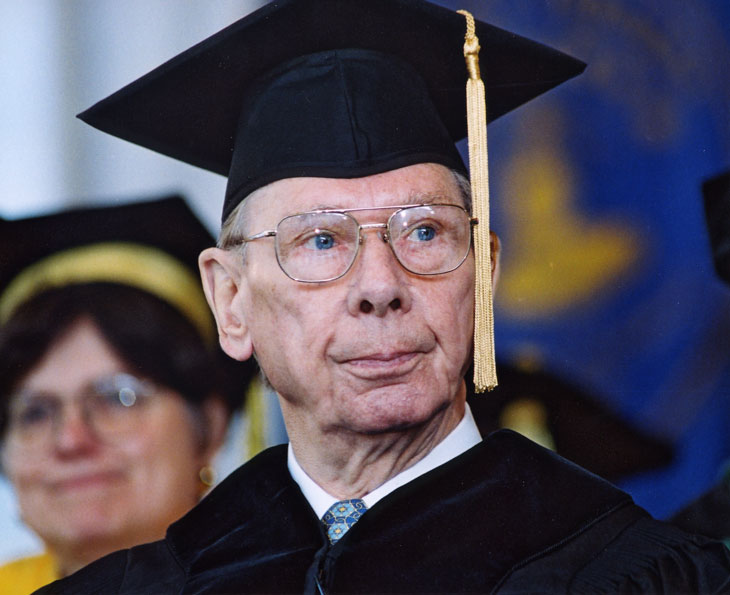About Claus M. Halle

Claus M. Halle often remarked that he had two birthdays: May 27, 1927, the day that he was born in Schwelm, Germany, and May 8, 1945, V-E Day, the end of World War II in Europe.
Halle (pronounced Hah-luh), who spent his early childhood in India, had been drafted into the German army at age 16. On the verge of capture by advancing Soviet troops, he risked his life to swim across the icy Elbe River and surrender to the American army instead. His family had lost everything. He had witnessed the horrors of warfare and his country’s descent into ethnic hatred and xenophobia.
Thus began his second life, marked by a dedication to expanding understanding and respect among peoples and nations of the world. In 1950, Halle joined The Coca-Cola Company in West Germany as a truck driver, beginning a long and distinguished career that spanned nearly 40 years.
"I had received a good education and came from a good family, but the war made us refugees," he recalls. "Mr. Woodruff [Robert Woodruff, former president of The Coca-Cola Company] said that the world belongs to the hungry. Refugees were hungry and willing to work harder."
From truck driver to executive
Working his way from trainee to area manager for central Europe, then president of Coca-Cola Europe to senior executive vice president, and finally to president of Coca-Cola International, Halle led the transformation of The Coca-Cola Company into a truly global operation. In the 1970s, he made Atlanta his adopted home and built a replica of his family’s ancestral home in Silesia, Germany, which had been destroyed in the war.
"I want more Americans to understand how deeply Germany feels a debt of gratitude for America’s help in recovery after the war," he said. "This relationship, of friendship and strong economic and political bonds, must form the backdrop for any passing political disagreements."
Upon retirement in 1989, Halle intensified his focus on philanthropy, serving on the boards of such organizations as The Carter Center, the Southern Center for International Studies, and the Woodruff Arts Center, among others. He established The Halle Foundation, an independent public grant making charity, to promote transatlantic relations between the people of Germany and the United States.
“America is such a vast continent with so many opportunities that there is a tendency not to learn enough about the rest of the world," he said. "U.S. relations with the rest of the world could be improved by learning more about other countries and societies.”
Founding the Halle Institute
In 1997, recognizing global citizenship as a defining characteristic of our age, he founded the Claus M. Halle Institute for Global Learning at Emory University to foster greater knowledge of the world among the Emory and Atlanta communities.
Based on the principle that cross-cultural understanding occurs most richly when people meet in face to face, the Halle Institute sponsors research on topics of global importance, brings distinguished policymakers and public intellectuals to Emory and Atlanta, and fosters dialogue among diverse audiences.
Legacy
In 2000, Emory bestowed upon Halle the honorary degree of Doctor of Humane Letters. He has since been remembered for his work in international philanthropy, encouragement to Americans in broadening their viewpoints, and as a statesman who invited people into his own home in order to engage them on his philosophy. Claus Halle lived a life seeking to expand understanding and respect around the globe, and for this, the Halle Institute honors his legacy.
